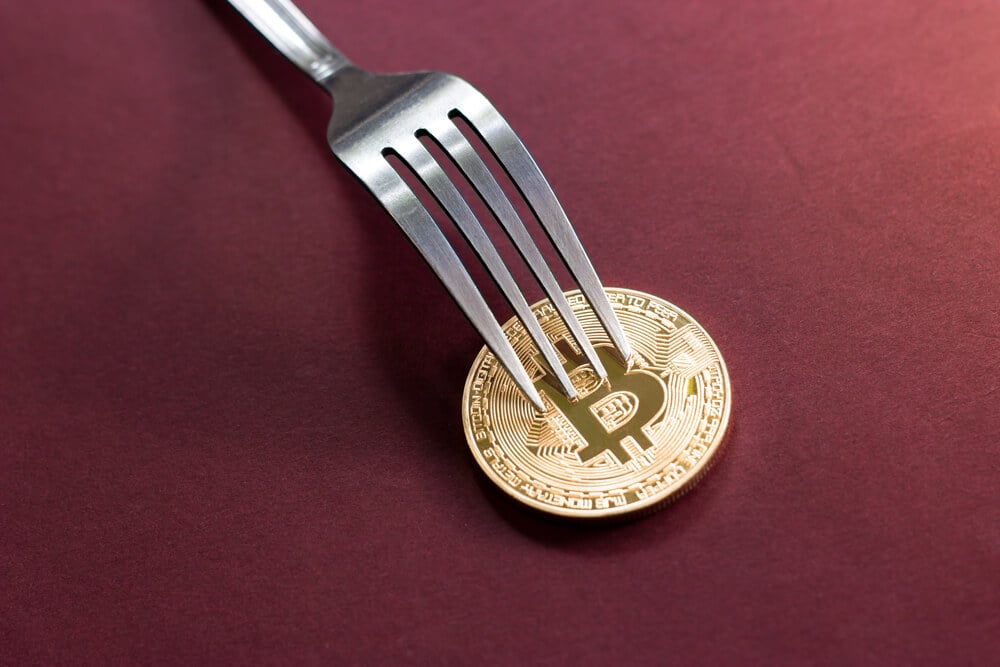Bitcoin is set to Undergo [Another] Hardfork to Create ‘Bitcoin Atom’

Source: Shutterstock
Since the creation of Bitcoin by Satoshi Nakamoto, there have been several modifications of the underlying protocol and entirely new projects have been forked out of this original protocol. Litecoin, Dash, Bitcoin Cash, Bitcoin Gold among others have all found existence with each of them claiming peculiar improvements from Bitcoin.
In its present state, the Bitcoin blockchain is faced with a number of weaknesses that has attracted huge criticism to the front-runner and most popular blockchain in existence. This is not a surprise since even Satoshi himself from the onset made it clear that he was open to discussions upon his idea.The inherent weaknesses identified have led to several predictions by opposing groups of the possible dethronement of Bitcoin as the N01 cryptocurrency.
Speed
The speed with which transactions are confirmed nowadays on the Bitcoin blockchain is a far cry from what it used to be even two years ago. Delayed transactions have become a common scenario on the Bitcoin blockchain which leaves users frustrated most often. This development is regarded as the major reason why the cryptocurrency isn’t suitable for transaction purposes, coupled with its high rate of volatility. Apparently, to encourage mainstream adoption, the value at the time of execution of a transaction should not vary from the time of receipt. This is hardly the case nowadays as Bitcoin transactions take several hours, and sometimes days before being confirmed. Several arguments have arisen as a result of this weakness and innovations such as SegWit and even the eventual hardfork which gave rise to Bitcoin Cash have all been based on the efficiency of the network.
Cost of transaction
Transaction fees have become a scare in the Bitcoin ecosystem. The fees are often so high sometimes that they can be termed ridiculous. Technically, Bitcoin transaction fees are determined based on the number of transactions and the size in kilobytes of each transaction. These fees however do not go to any central authority, but rather to the miners as rewards for transaction confirmation. Therefore, transactions with higher inputs will require more work, so during times of increased market volatility, as is mostly the case nowadays, miners become attracted to transactions with less inputs. This implies less work for them, hence transactions with higher number of inputs (which are usually more popular) will need to pay higher fees in order to appear attractive to the miners.
These fees most often negate the assumption of peer-to-peer transactions as a cheaper method of remittance.
Quasi-centralization
The Bitcoin blockchain is a decentralized platform, at least by design. However, the recent configuration of the ecosystem sees majority of the mining powers resting in the hand of a few individuals. As a community that is governed by consensus, this implies that these few miners who control most of the hashing power will always call the shots. Many argue that this gives the community an outlook of a centralized system and as such, functions like that.
Another hardfork – Bitcoin Atom
The Bitcoin blockchain is about to experience another hardfork by an anonymous team that claim to uphold the original principles of Satoshi Nakamoto as they create Bitcoin Atom (BCA) .
According to the leader of the team who chooses to remain anonymous, in bringing a solution to the dual problem of speed and cost, the protocol will run both on-chain and off-chain mechanisms, (i.e lightening and atomic swaps). He notes that even though centralization is a less obvious weakness for Bitcoin, the risks posed by exchanges upon which the cryptocurrency is usually transacted is enough concern for the industry.
“Centralization is less obvious but the problem with main transfer of value in crypto world is exchanges. Centralized exchanges can be hacked or disappear or shut down by the regulators, and decentralized exchanges such as Etherdelta don’t trade bitcoin and only trade ERC-20 tokens. Even at that, they can get hacked”, He says.
The Bitcoin Atom team claim to include exchange functionalities also at the protocol level on the nodes of Bitcoin itself, thus nobody can control the exchange but the system itself.
This protocol, however, will combine both proof of work and proof of stake that will be based on the old Bitcoin codebase, unlike similar implementations before it.
The fork is expected to happen between January 24th and 25th 2018 at Block 505 888.
Featured image from Shutterstock.